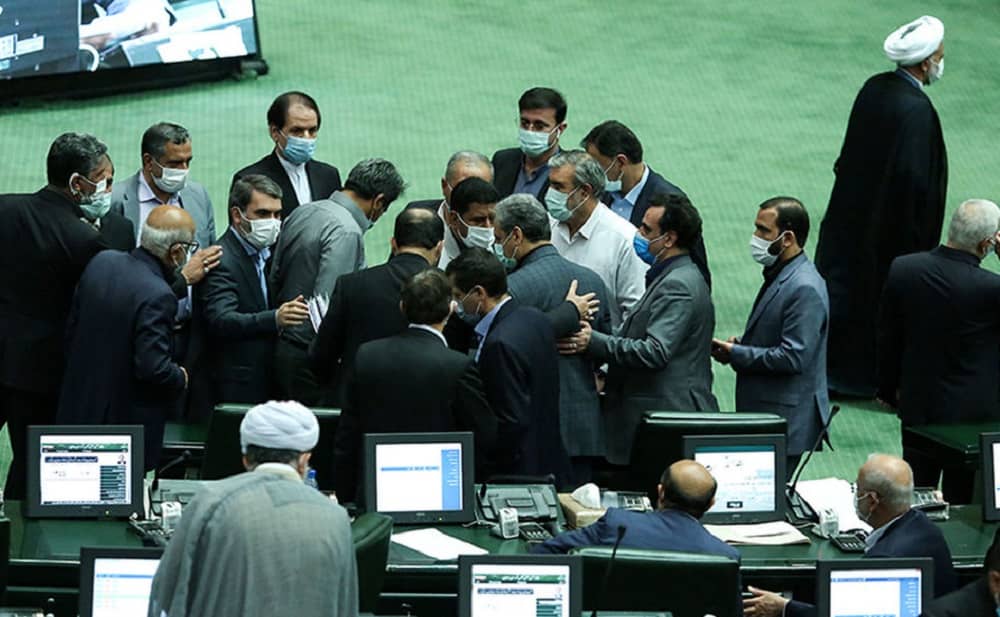

The Election Headquarters, under Ebrahim Raisi’s government, announced the disqualification of 25 current members of parliament, including four women, from the upcoming twelfth parliamentary elections.
The decision, executed by executive committees comprising representatives from various state organizations, has sparked criticisms and justifications. The head of the Election Headquarters defended the move, stating the disqualified representatives “failed to meet the required criteria,” rather than being targeted for their political views.
State and IRGC-affiliated media outlets have backed the government’s stance. The Mashregh newspaper, linked to the IRGC Intelligence Organization, emphasized the people’s role in organizing the elections, asserting that the election executives were merely implementing strategies from the Supreme Leader. Meanwhile, the state-run “Jahan-e San’at” newspaper observed that the common thread among the disqualified was their criticism of the Raisi government.
The Origins and Impact of a Failed Consolidation Project in #Iranhttps://t.co/sab1UktUwv
— NCRI-FAC (@iran_policy) October 31, 2023
The government’s approach has been both strategic and cautious. Ahmad Khatami, in his sermon, urged disqualified individuals to work towards national betterment and not to challenge the system, emphasizing the importance of voter turnout for the regime’s stability. Conversely, Mohammad Mokhtari, another religious leader, labeled the disqualified members as “foreign mercenaries,” highlighting the regime’s concern over external influences during elections.
These actions indicate the Tehran regime’s precarious situation, grappling with internal discontent and defections. Supreme Leader Ali Khamenei’s strategy appears to focus on eliminating dissenting voices and suppressing disagreement. This approach has been further complicated by regional dynamics, with Khamenei leveraging the Gaza conflict to sideline domestic rivals.
Notably, some individuals who initially opposed Khamenei’s leadership have shifted their support in the wake of the Gaza crisis, hoping to gain a share of power. However, Khamenei’s recent actions suggest no leniency will be afforded, as the regime battles to maintain its grip amidst growing challenges.
Concerns about further purging by the Guardian Council have been raised, with the Ettela’at newspaper warning of the dire consequences of continued political consolidation. The paper highlights the risks to social cohesion, territorial integrity, and national assets, cautioning against the neglect of looming crises.
Candidates of #Iran’s sham presidential election, such as Ebrahim Raisi, Ali Larijani, and Eshaq Jahangiri, have for 40 years played major roles in crimes against humanity, warmongering, war crimes, repression, censorship, terrorism, and plundering.https://t.co/J3cnTr9NQ9
— Mohammad Mohaddessin (@Mohaddessin) May 15, 2021
In summary, the Iranian regime’s recent move to disqualify members of its Parliament marks a significant escalation in its efforts to solidify power, reflecting the complex interplay of internal politics and regional dynamics. The situation remains tense, with the potential for further upheaval as the regime navigates these turbulent times.

MEK Iran (follow us on Twitter and Facebook), Maryam Rajavi’s on her site, Twitter & Facebook, NCRI (Twitter & Facebook), and People’s Mojahedin Organization of Iran – MEK IRAN – YouTu







